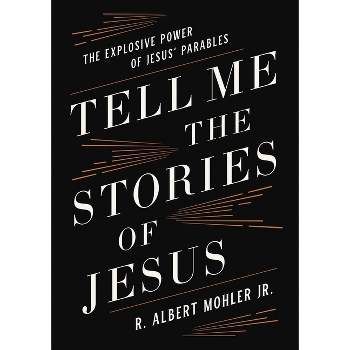Sponsored
God Is a Communicative Being - (T&t Clark Studies in Systematic Theology) by William M Schweitzer (Paperback)


About this item
Highlights
- A fresh macroscopic look at Edwards describing his distinctive theology (divine communicativeness) and lifelong project (the interpretation of harmony).
- About the Author: Dr. William M. Schweitzer received his PhD from Edinburgh University, UK, and is an ordained minister in the Presbyterian Church of America, USA.
- 208 Pages
- Religion + Beliefs, Christian Theology
- Series Name: T&t Clark Studies in Systematic Theology
Description
Book Synopsis
A fresh macroscopic look at Edwards describing his distinctive theology (divine communicativeness) and lifelong project (the interpretation of harmony).Review Quotes
"'The concept of communion is central to Edwards' thought. Believers partaking in the eucharist shadow forth a greater communion of Christ and the church; regeneration is achieving communion with the Holy Spirit; and the very nature of God is communicative. God seeks to communicative Godself to creation and to perceiving being. This "unifying factor," William Schweitzer demonstrates in this new appraisal, helps to "explain Edwards" his doctrine of God and the Trinity, his theology of revelation, and the harmony of Scripture, nature, and history, all of which informed Edwards' "overarching project" of elucidating God's sovereign work of redemption.' - Kenneth Minkema, The Jonathan Edwards Center at Yale University, USA." --Kenneth Minkema
"This is an important book, not because it offers a penetrating analysis of a specific theme found in Jonathan Edwards's theology, but because it presents a very readable overview of Edwards's entire theological project. William Schweitzer's work is an admirable study which seeks to ascertain the overarching scaffolding that frames Edwards's thought. The book is clearly written and easy to understand. I recommend it to anyone seeking to grasp the central themes animating Edwards's theology ... It is eminently readable and a great place for theologians, pastors, and Christians to begin grappling with Edwards's theology as a whole." --Robert W. Caldwell, III, Southwestern Baptist Theological Seminary, USA, Journal of Theological Studies (Vol. 64.2)About the Author
Dr. William M. Schweitzer received his PhD from Edinburgh University, UK, and is an ordained minister in the Presbyterian Church of America, USA. He serves as the church planting minister of Gateshead Presbyterian Church in Northern England.











